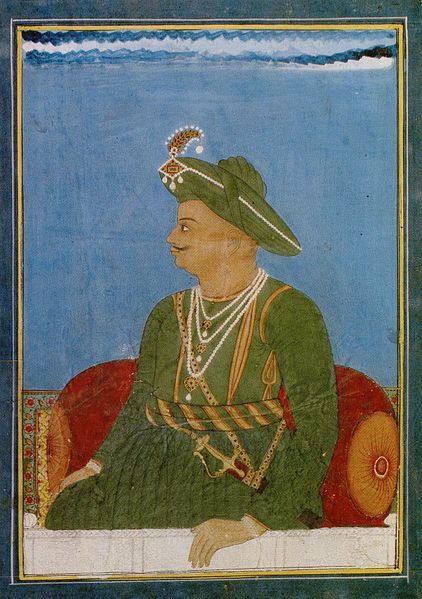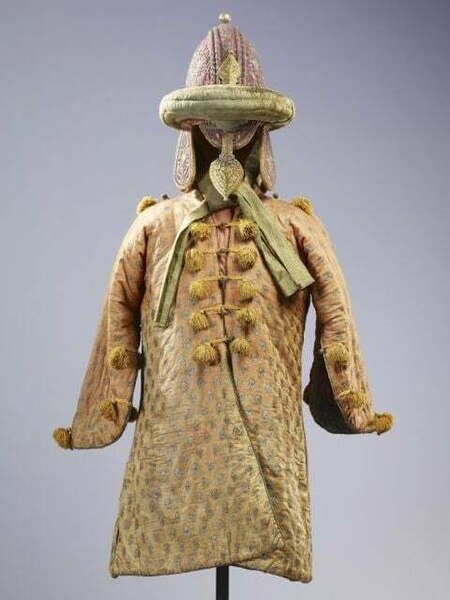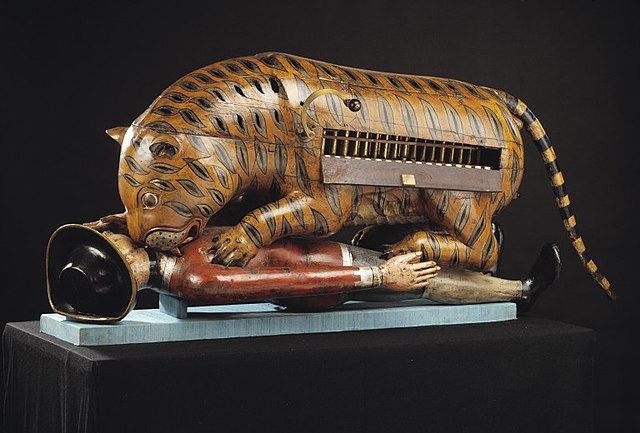Tipu Sultan, commonly referred to as Sher-e-Mysore or "Tiger of Mysore", was the Indian Muslim ruler of the Kingdom of Mysore based in South India. He was a pioneer of rocket artillery. He introduced a number of administrative innovations during his rule, including a new coinage system and calendar, and a new land revenue system, which initiated the growth of the Mysore silk industry. Tipu was also a pioneer in introducing Channapatna toys. He expanded the iron-cased Mysorean rockets and commissioned the military manual Fathul Mujahidin. He deployed the rockets against advances of British forces and their allies during the Anglo-Mysore Wars, including the Battle of Pollilur and Siege of Srirangapatna.
Portrait of Tipu Sultan, from Mysore (c. 1790–1800).
Tippu's birthplace, Devanahalli.
War coat used by Tipu Sultan of Mysore.c. 1785-1790
Mural of the Battle of Pollilur on the walls of Tipu's summer palace, painted to celebrate his triumph over the British
The Kingdom of Mysore was a realm in the southern part of Deccan Plateau traditionally believed to have been founded in 1399 by two Hindu brothers, in the vicinity of the modern city of Mysore. From 1799 until 1950, it was a princely state, until 1947 in a subsidiary alliance with British India. The British took direct control over the princely state in 1831. Upon accession to the Dominion of India, it became Mysore State, later uniting with other Kannada speaking regions to form the state of Karnataka, with its ruler remaining as Rajapramukh until 1956, when he became the first governor of the reformed state.
Admiral Suffren meeting with ally Hyder Ali in 1783. J. B. Morret engraving, 1789
Tipu's Tiger with the organ keyboard visible
Kingdom of Mysore (1704) during the rule of King Chikka Devaraja Wodeyar
Admiral Suffren meeting with ally Hyder Ali in 1783. J. B. Morret engraving, 1789







